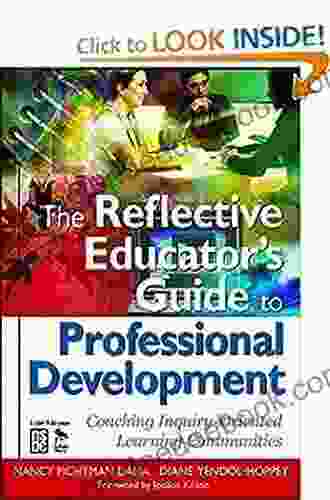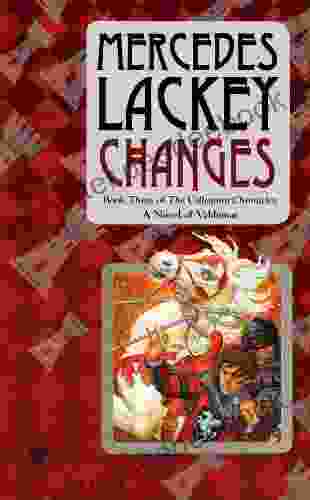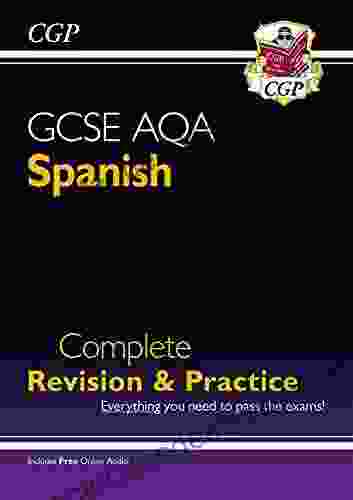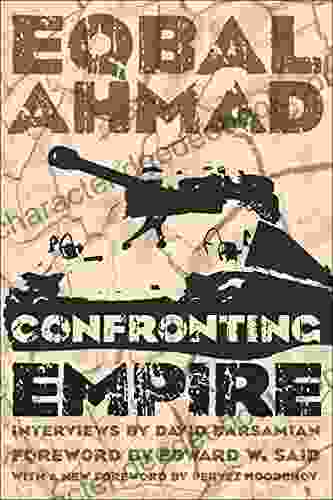Coaching Inquiry-Oriented Learning Communities: Empowering Students to Become Active Learners and Critical Thinkers

In today's rapidly changing world, it is more important than ever for students to be able to think critically, solve problems, and communicate effectively. Inquiry-oriented learning communities (IOLCs) are a powerful way to help students develop these skills.
IOLCs are learning environments in which students are encouraged to ask questions, explore ideas, and share their thoughts with others. They are based on the belief that students learn best when they are actively engaged in their own learning.
4.7 out of 5
| Language | : | English |
| File size | : | 2587 KB |
| Text-to-Speech | : | Enabled |
| Enhanced typesetting | : | Enabled |
| Word Wise | : | Enabled |
| Print length | : | 205 pages |
| Screen Reader | : | Supported |
What are the benefits of coaching IOLCs?
There are many benefits to coaching IOLCs, including:
- Increased student engagement: Students who are involved in IOLCs are more likely to be actively engaged in their learning. They are more likely to ask questions, participate in discussions, and complete assignments.
- Improved critical thinking skills: IOLCs help students develop their critical thinking skills by encouraging them to question assumptions, analyze evidence, and form their own opinions.
- Enhanced problem-solving skills: IOLCs provide students with opportunities to work together to solve problems. This helps them develop their problem-solving skills and learn how to collaborate with others.
- Improved communication skills: IOLCs help students develop their communication skills by encouraging them to share their thoughts and ideas with others. They learn how to express themselves clearly and persuasively.
- Increased self-confidence: IOLCs help students develop their self-confidence by providing them with opportunities to take risks and learn from their mistakes. They learn that they are capable of learning and growing.
How can I coach an IOLC?
There are many different ways to coach an IOLC. Some of the most effective strategies include:
- Creating a safe and supportive learning environment: Students need to feel safe and supported in order to be able to take risks and learn from their mistakes. Create a classroom environment where students feel comfortable asking questions, sharing their ideas, and challenging each other's perspectives.
- Encouraging students to ask questions: The best way to encourage students to ask questions is to model this behavior yourself. Ask questions of your students, and encourage them to ask each other questions.
- Helping students to explore ideas: Once students have started asking questions, help them to explore ideas by providing them with resources and opportunities to gather information. Encourage them to share their findings with the class.
- Facilitating discussions: Discussions are a great way for students to share their thoughts and ideas with each other. As a coach, your role is to facilitate these discussions by asking questions, encouraging students to participate, and keeping the conversation focused on the topic.
- Providing feedback: Feedback is essential for students to learn and grow. Provide students with regular feedback on their work, both positive and constructive. Help them to identify their strengths and weaknesses, and encourage them to set goals for improvement.
Coaching IOLCs can be a challenging but rewarding experience. By creating a safe and supportive learning environment, encouraging students to ask questions, and providing them with regular feedback, you can help them to become active learners and critical thinkers.
Additional resources
- The Inquiry-Oriented Learning Community Handbook
- Coaching Inquiry-Oriented Learning Communities
- The Power of Inquiry-Oriented Learning Communities
4.7 out of 5
| Language | : | English |
| File size | : | 2587 KB |
| Text-to-Speech | : | Enabled |
| Enhanced typesetting | : | Enabled |
| Word Wise | : | Enabled |
| Print length | : | 205 pages |
| Screen Reader | : | Supported |
Do you want to contribute by writing guest posts on this blog?
Please contact us and send us a resume of previous articles that you have written.
 Book
Book Novel
Novel Reader
Reader Library
Library Paperback
Paperback Newspaper
Newspaper Bookmark
Bookmark Shelf
Shelf Glossary
Glossary Bibliography
Bibliography Synopsis
Synopsis Annotation
Annotation Scroll
Scroll Codex
Codex Tome
Tome Bestseller
Bestseller Classics
Classics Biography
Biography Reference
Reference Thesaurus
Thesaurus Narrator
Narrator Character
Character Librarian
Librarian Catalog
Catalog Stacks
Stacks Archives
Archives Periodicals
Periodicals Study
Study Research
Research Scholarly
Scholarly Reserve
Reserve Reading Room
Reading Room Literacy
Literacy Thesis
Thesis Dissertation
Dissertation Storytelling
Storytelling Reading List
Reading List Book Club
Book Club Theory
Theory Textbooks
Textbooks Alberto Moravia
Alberto Moravia Jeff Kingston
Jeff Kingston Grace Marie Turner
Grace Marie Turner Tammy Ruggles
Tammy Ruggles Julie Demsey
Julie Demsey K Arnhart
K Arnhart Gilian Dye
Gilian Dye Amber Bradshaw
Amber Bradshaw Katie Roiphe
Katie Roiphe Harule Stokes
Harule Stokes Jo Ann Beard
Jo Ann Beard Shelley G Trebesch
Shelley G Trebesch Carrie Goldberg
Carrie Goldberg Wendy Knight
Wendy Knight Fletcher Knebel
Fletcher Knebel Yorick Wilks
Yorick Wilks Mirsad Solakovic
Mirsad Solakovic Skylar Derouen
Skylar Derouen Tom Martin
Tom Martin Thyra Heder
Thyra Heder
Light bulbAdvertise smarter! Our strategic ad space ensures maximum exposure. Reserve your spot today!
 W.B. YeatsFollow ·19k
W.B. YeatsFollow ·19k Tony CarterFollow ·13.1k
Tony CarterFollow ·13.1k Graham BlairFollow ·6.4k
Graham BlairFollow ·6.4k Jessie CoxFollow ·19.9k
Jessie CoxFollow ·19.9k Julio Ramón RibeyroFollow ·2k
Julio Ramón RibeyroFollow ·2k George OrwellFollow ·15.6k
George OrwellFollow ·15.6k Branson CarterFollow ·2.2k
Branson CarterFollow ·2.2k Eliot FosterFollow ·9.9k
Eliot FosterFollow ·9.9k
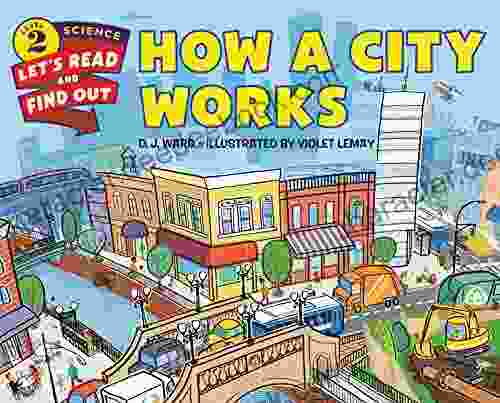
 Ronald Simmons
Ronald SimmonsHow Do Cities Work? Let's Read and Find Out!
Cities are...
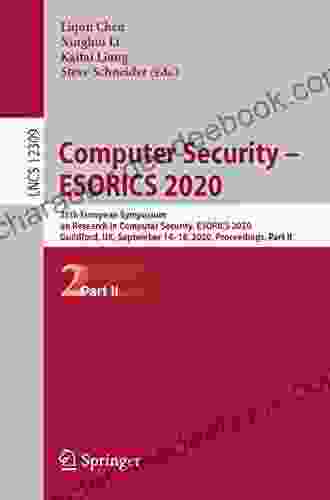
 Tom Clancy
Tom Clancy25th European Symposium on Research in Computer Security...
<p>Guildford,...
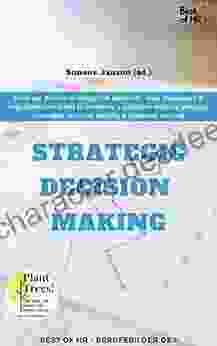
 Lawrence Bell
Lawrence BellHow We Decide: Cognitive Behavior in Organizations and...
Organizations are...

 E.M. Forster
E.M. ForsterOver 60 Little Masterpieces To Stitch And Wear:...
Embark on a Creative...

 Douglas Foster
Douglas FosterUnveiling the Educational Treasure: CGP KS2 Geography:...
In the ever-evolving educational...
4.7 out of 5
| Language | : | English |
| File size | : | 2587 KB |
| Text-to-Speech | : | Enabled |
| Enhanced typesetting | : | Enabled |
| Word Wise | : | Enabled |
| Print length | : | 205 pages |
| Screen Reader | : | Supported |


